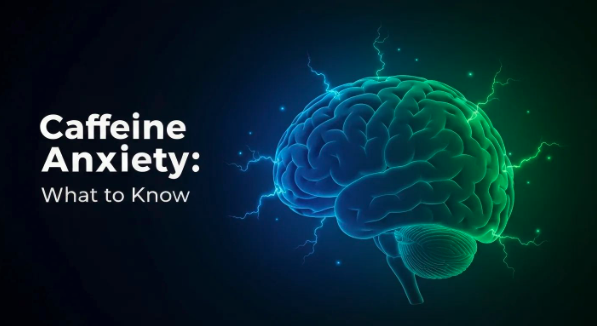Essential Coping Strategies for Emotional Outbursts
Discover coping strategies for emotional outbursts to manage triggers and promote emotional well-being effectively.


Understanding Emotional Outbursts
Emotional outbursts can be complex reactions arising from various factors. Understanding the causes and triggers of these outbursts is essential for developing effective coping strategies for emotional outbursts.
Causes and Triggers
Emotional outbursts often stem from an overflow of negative emotions such as anger, sadness, or frustration. These reactions frequently occur when unmet needs or expectations have persisted for an extended period [1]. Below are key causes and triggers associated with emotional outbursts:
Cause/TriggerDescriptionUnmet NeedsLong-term unhappiness due to unmet emotional, physical, or psychological needs.StressHigh-stress situations can exacerbate emotional responses, particularly in individuals with existing vulnerabilities.Emotional LabilityUncontrollable emotional changes that can be linked to mental or physical health issues.Societal PressuresExpectations from work, relationships, or societal norms can contribute to feelings of inadequacy or frustration.
Frequent emotional outbursts may indicate an inability to cope effectively with the pressures and demands placed on individuals, which can arise from personal, academic, or professional contexts [2].
Differentiating Factors
Not all emotional outbursts are the same. They can vary significantly based on individual circumstances and underlying conditions. For example, uncontrolled emotional outbursts in adults can signal serious mental health issues, whereas such reactions in children can be a normal part of their development [2].
To differentiate emotional outbursts, consider the following factors:
FactorDescriptionFrequencyHow often do the outbursts occur? Frequent occurrences may indicate deeper issues.ContextWhat circumstances lead up to the outburst? Identifying specific triggers can help in understanding patterns.Emotional HistoryDoes the individual have a history of emotional dysregulation or a diagnosed condition? This history can influence the nature of outbursts.ResponseHow do individuals respond post-outburst? Guilt, shame, and helplessness can indicate emotional instability.
Recognizing these factors plays a crucial role in addressing emotional outbursts effectively. Understanding might help individuals develop better coping methods and provide insights for treatment options. For further reading, explore topics such as understanding emotional dysregulation and the impact of personality disorders on self-esteem.

Coping Strategies for Emotional Outbursts
Managing emotional outbursts can be challenging, but there are effective strategies that can help individuals cope with and reduce these intense feelings. Here, we explore recognizing emotional vulnerabilities, practicing assertive communication, and utilizing grounding and relaxation techniques.
Recognizing Emotional Vulnerabilities
Understanding personal emotional vulnerabilities is crucial for preventing outbursts. Individuals should take note of specific triggers that lead to emotional distress, such as lack of sleep, high stress levels, or conflicts within relationships. By identifying these triggers, individuals can develop proactive strategies to manage their emotions before they escalate into outbursts.
Common TriggersImpact on EmotionsLack of SleepIncreased irritabilityHigh Stress LevelsHeightened emotional reactionsConflicts at HomeFeelings of frustrationLow Blood SugarMood swings
Engaging in self-reflection and recognizing these vulnerabilities allows for better preparation and reduces the likelihood of emotional surges. Seeking support from mental health professionals may also be beneficial in addressing these vulnerabilities more effectively [1].
Practicing Assertive Communication
Learning to communicate assertively is a fundamental skill that can greatly reduce emotional outbursts. Assertive communication involves expressing thoughts and feelings in a clear, respectful manner without aggression. This approach can defuse potential conflicts and minimize misunderstandings.
Key Techniques for Assertive Communication:
By mastering these communication skills, individuals can articulate their emotions constructively and prevent situations from escalating. Effective communication also fosters better relationships and promotes emotional support [1].
Grounding and Relaxation Techniques
Incorporating grounding and relaxation techniques can significantly help in managing emotional states. These methods aim to bring individuals back to the present moment, reducing overwhelming feelings. Here are some effective techniques:
TechniqueDescriptionDeep BreathingFocus on slow, deep breaths to calm the nervous system.Progressive Muscle RelaxationTense and release muscle groups to alleviate tension.Mindfulness MeditationPractice being present in the moment with non-judgment.
Regular physical activity, such as brisk walking or running, can also aid in reducing stress and managing emotional outbursts. Engaging in physical movement releases endorphins, promoting a sense of well-being.
Adopting these coping strategies, including recognizing emotional vulnerabilities, practicing assertive communication, and implementing grounding and relaxation techniques, can empower individuals to manage their emotional outbursts more effectively. For additional information, see our articles on managing impulsivity in personality disorders and understanding emotional dysregulation.
Psychological Effects of Emotional Suppression
Understanding the psychological effects of emotional suppression is critical, particularly when addressing personality disorders. The act of suppressing emotions can lead to various health risks and profound impacts on an individual's well-being, stemming from societal expectations and personal experiences.
Health Risks of Emotional Suppression
Emotional suppression can pose significant health risks. Studies have indicated a potential connection between emotional suppression and increased mortality risk. For instance, research conducted in Yugoslavia during the 1970s revealed that persistent feelings of hopelessness correlated with cancer, while suppressed anger was linked to heart disease. Furthermore, a longitudinal study spanning 12 years found that people who suppress their emotions might face a higher likelihood of earlier death, including due to cancer. Strong emotions, such as jealousy, fear, anger, guilt, or remorse, if repressed, can lead to serious health consequences [4].
Health RiskAssociated EmotionCancerHopelessnessHeart DiseaseSuppressed AngerEarly MortalityGeneral Emotion Suppression
Link to Physical and Psychological Effects
Repressed emotions are often anchored in unprocessed feelings that are relegated to the subconscious. This often originates from traumatic past experiences, particularly during childhood. If children are not provided with the necessary support to express their emotions, they may learn to suppress their feelings, leading to long-lasting emotional consequences. Suppressed emotions linger and can significantly affect overall well-being. Individuals who chronically repress their emotions may experience heightened levels of anxiety, depression, and stress over time.
Emotional ConsequenceDescriptionAnxietyIncreased worry and fear due to unaddressed emotionsDepressionPersistent sadness stemming from unresolved feelingsStressPhysical and emotional strain caused by failure to express emotions
Influence of Societal Expectations
Societal norms can heavily influence emotional suppression. Individuals may feel compelled to conform to expectations that discourage emotional expression. This pressure to suppress emotions might arise from cultural beliefs, familial dynamics, or experiences of trauma. Many people suppress their emotions to maintain functionality in daily life, uphold relationships, or cope with challenging circumstances. These behaviors often stem from a desire to avoid distress or replace negative feelings with more acceptable ones. Ultimately, this societal expectation to conceal emotions may lead to detrimental long-term effects on mental health and interpersonal relations [4].
By grasping the link between emotional suppression and health risks, individuals can better understand the importance of employing coping strategies for emotional outbursts and advocating for open emotional expression in their lives.
Managing Emotional Triggers
Emotional triggers can elicit intense reactions that may lead to emotional outbursts. Understanding and managing these triggers is an essential part of coping strategies for emotional outbursts.
Identifying Triggers
Triggers are specific to each individual and can differ significantly among people. They often include a person, place, thing, or situation that provokes a strong emotional response or causes one to relive past trauma. Triggers activate an autonomic (fight-or-flight) response, leading to heightened emotional states. Keeping a journal to track situations and feelings can help pinpoint these triggers.
Type of TriggerExamplesPeoplePast acquaintances, family membersPlacesLocations associated with trauma or stressThingsObjects that remind one of negative experiencesSituationsSocial gatherings, stressful meetings
Coping Strategies for Triggers
To effectively manage emotional triggers, individuals can employ various coping strategies. Some effective techniques include:
Seeking Professional Help
In cases where emotional triggers lead to significant dysregulation, seeking professional help may be necessary. Treatment options for emotional dysregulation can include counseling, antidepressant medications, diet and exercise adjustments, and learning new emotional regulation techniques. Working with professionals provides support and introduces new psychological tools to promote positive self-esteem and emotional control.
By identifying triggers, utilizing coping strategies, and seeking help when needed, individuals can successfully navigate the challenges of emotional outbursts and improve their overall emotional health.
Emotional Dysregulation
Emotional dysregulation can significantly impact an individual's daily life. It is defined by difficulty in managing and responding to emotional experiences, which can lead to severe emotional fluctuations and disrupted social interactions.
Impact on Daily Life
Individuals experiencing emotional dysregulation often struggle with maintaining stable relationships, performing well at work, or managing everyday stressors. Emotional outbursts can occur in response to minor triggers, making it hard to navigate social situations or engage in productive discussions.
Daily Life ChallengesDescriptionRelationship StrugglesFrequent misunderstandings and conflicts can arise in personal relationships due to emotional volatility.Work PerformanceErratic emotional responses can lead to decreased productivity and challenges in teamwork.Social IsolationFear of social interactions may increase due to the unpredictability of emotional reactions.
Research shows that early childhood trauma, child neglect, and chronic low levels of invalidation can contribute to emotional dysregulation [6]. These experiences can interfere with an individual's quality of life and overall mental health.
Treatment and Interventions
Effective treatment for emotional dysregulation often involves a multi-faceted approach. Some common strategies include:
Learning new psychological tools is essential for promoting positive self-esteem and emotional control [6]. Identifying and addressing underlying issues such as trauma or stressors can also lead to improved emotional health.
Skill-Building for Emotional Control
Developing emotional control is a crucial step in managing dysregulation. Mental health professionals can assist individuals in learning skills to better express their emotions and achieve stability.
Skill-Building StrategiesDescriptionEmotional AwarenessRecognizing emotional triggers and reactions to better manage responses.Coping MechanismsDeveloping strategies to cope with overwhelming feelings, such as journaling or engaging in creative outlets.Communication SkillsEnhancing assertive communication to express needs and feelings without escalating conflicts.
Research indicates that emotional regulation training can help reduce extreme reactions and support individuals in developing healthier emotional responses. By fostering these skills, individuals can improve their quality of life and relationships.
For those seeking to understand the broader implications of emotional difficulties, consider exploring understanding emotional dysregulation or learning about managing impulsivity in personality disorders.
Dangers of Suppressing Emotions
Suppressing emotions can significantly impact an individual's mental and physical well-being. Understanding these dangers is crucial for better emotional regulation and health.
Effects on Mental Health
Continually suppressing emotions can lead to detrimental mental health effects. Research indicates that emotional suppression is associated with anxiety, depression, and increased stress levels. Emotional avoidance often exacerbates these conditions, creating a cycle that is difficult to break. Additionally, this suppression can contribute to substance abuse as individuals may turn to alcohol or drugs to cope with their unprocessed feelings [4].
Mental Health EffectsPercentage of Individuals AffectedAnxiety Disorders40%Depression30%Stress-Related Illnesses25%Substance Abuse15%
Physical and Psychological Consequences
Suppressing strong emotions like anger, jealousy, or remorse can have serious physical consequences. Studies highlight a potential link between emotional suppression and an increased mortality risk. For instance, research from Yugoslavia found that long-lasting hopelessness was independently associated with cancer, while anger correlated with heart disease. Over a 12-year study, individuals who practiced emotional suppression showed an increased risk of earlier death. These findings illustrate that unaddressed emotions can lead to significant health risks [4].
Physical ConsequencesAssociated Emotional StatesHeart DiseaseAngerCancerHopelessnessVice-related IllnessesUnprocessed Emotions
Process of Emotional Suppression
Emotional suppression occurs when individuals deliberately push uncomfortable thoughts and feelings out of their consciousness. Common methods of suppression include distraction, numbing, overeating, or engaging in excessive physical activity. Although some level of emotional regulation is necessary for functioning in society, it is vital to differentiate between beneficial emotion regulation and harmful suppression. When emotions are pushed away without being processed, they persist in the subconscious and can lead to long-term psychological and physical issues [4].
Factors influencing emotional suppression can include societal expectations, trauma, and the need to cope in dysfunctional environments. Individuals may feel the need to suppress emotions to maintain relationships or avoid distress, which may lead to chronic emotional issues over time [4].
References
[2]:
[3]:
[4]:
[5]:
[6]:
More Resources
A team ready to start your journey.
Get in touch — today.
We are a safe space – a haven for exceptional individuals to receive discreet, personalized, in-person treatment and care.
.avif)

.webp)








